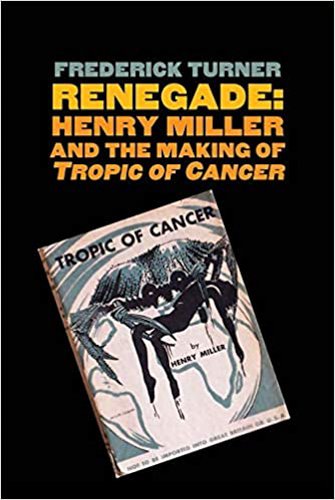Frederick Turner
Frederick Turner is the author of seven books of nonfiction and three novels. The recipient of awards from the National Endowment for the Arts and the Guggenheim Foundation, he lives in Santa Fe, New Mexico.
"Frederick Turner's Redemption is an implacable stew of sex and love, vice and violence. Turner is a prose master and also a bear of very large brain. Rarely do we see a novel on this grand scale of historical perceptiveness, with our country's bruised soul a backstory to the finely drawn ordinary characters who become mythic in the progress of the tale. This is an important novel." —Jim Harrison, author of TRUE NORTH and LEGENDS OF THE FALL
Select Books
In the Land of Temple Caves: Notes on Art and the Human Spirit
In the Land of Temple Caves travels back to the very beginning of Art to assess anew its meanings in the long human story. Frederick Turner makes a personal investigation of sanctuaries in France and Spain that the great mythographer Joseph Campbell called the “temple caves,” the earliest known of which contains paintings and engravings more than 32,000 years old, works of art more advanced than the hunting implements by which their creators lived. In caves and prehistoric shelters, along the valleys tracing the mighty rivers of the Ice Age, in a war-ravaged village, and in a city church far removed from the country of the caves, Turner finds resonant meaning in what he has always believed to be true. Art does matter―vitally―and never more than now.
(Counterpoint Press, October 2019)
John Muir: Rediscovering America
In his stirring biography, Frederick Turner, the distinguished writer and cultural historian, captures the legendary scale of the life of an American icon. Immigrant, inventor, botanist, and founder of the conservation movement, John Muir (1838-1914) truly led those of his time-and now ours-to rediscover the natural beauty of this land. From his harsh childhood in Scotland and on a Wisconsin pioneer farm, to his rugged, solitary explorations all over America and especially in the Sierras, to his passionate battle, in person and in his writings, to save and celebrate our wilderness, Muir was a heroic figure. Turner's biography is every bit as monumental and inspiring as its subject.
(Da Capo Press, September 2000)
The Go-Between: A Novel of the Kennedy Years
A faded newspaperman downs a double Maker's Mark and contemplates life as a "ham-and-egger," a hack. Then one day he finds the scoop of a lifetime in a Chicago basement: diaries belonging to the infamous Judith Campbell Exner. Right, that Judy, the game girl who waltzed into the midst of America's most powerful politicians, entertainers, and criminals as they conspired to rule America.
When Frank Sinatra flew Judy to Hawaii for a weekend of partying, she could harly have imagined where it would lead her: straight to the White House and the waiting arms of Jack Kennedy. And then came the day that JFK and his brother Bobby asked her to carry a black bag to Chicago, where she was to hand it off to the boss of bosses, Sam Giancana. As our narrator pieces the notebooks into a coherent story, he finds mob connections, rigged primaries, assassination plots, and trysts--and begins to see beyond the tabloid fare to a real woman, adrift and defenseless in a dangerous world where the fates of nations are at stake. As one by one the men Judy loved betrayed her and disappeared, and as the FBI pursued her into a living hell, her diary entries disintegrate along with the beautiful, tough, sweet woman the narrator has come to know. Who was Exner, after all? Just a gangster's moll? Or a bighearted woman who believed the sky-high promises of the New Frontier--and paid the price?
(Mariner Books, May 2010)
Renegade: Henry Miller and the Making of "Tropic of Cancer"
Though branded as pornography for its graphic language and explicit sexuality, Henry Miller's Tropic of Cancer is far more than a work that tested American censorship laws. In this riveting book, published to coincide with the fiftieth anniversary of Tropic of Cancer's initial U.S. release, Frederick Turner investigates Miller's unconventional novel, its tumultuous publishing history, and its unique place in American letters.
Written in the slums of a foreign city by a man who was an utter literary failure in his homeland, Tropic of Cancer was published in 1934 by a pornographer in Paris, but soon banned in the United States. Not until 1961, when Grove Press triumphed over the censors, did Miller's book appear in American bookstores. Turner argues that Tropic of Cancer is "lawless, violent, colorful, misogynistic, anarchical, bigoted, and shaped by the same forces that shaped the nation." Further, the novel draws on more than two centuries of New World history, folklore, and popular culture in ways never attempted before. How Henry Miller, outcast and renegade, came to understand what literary dynamite he had within him, how he learned to sound his "war whoop" over the roofs of the world, is the subject of Turner's revelatory study.
(Yale University Press, December 2011)




